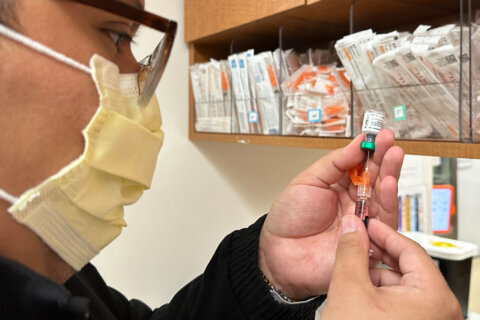
While everyone else is participating in fun activities, you’re in bed with the sniffles. After a sleep-deprived night due to incessant coughing, you drag yourself out of bed trying to focus on all the things you have to do. Work is piling up, but your body feels absolutely miserable. This week has gone by fast, and you realize how much time you’ve lost because this sickness has wiped you out. The more you think about it, the more it stresses you out. It’s just a common cold, no big deal. Except catching a cold could also be a symptom of a deeper problem: burnout.
For high-achieving workaholics, time is such a precious commodity that no one can afford to lose it. The stress of having to make up double-time for all the work you leave undone while you’re out makes you think twice about calling in sick. Rather than listening to your body, you chug numerous cups of coffee throughout the day, and at night, you chug alcohol to make the stress go away and numb yourself out.str
[See: 7 Health Risks of Binge Drinking You Can’t Ignore.]
Too busy for self-care?
Time. It’s the one thing you don’t think you have, but you always make time for your priorities, like work and short-term stress relievers, which aren’t necessarily healthy. For most people, short-term relief replaces self-care and revolves around setting goals and meeting deadlines. You know what you ought to do — exercise, eat right and sleep well — but your ever-increasing responsibilities demand that you stay up, sleep less (or don’t sleep) and manage stress without taking any time out for yourself.
How do you perceive stress?
Is stress all in your mind? According to a TedTalk given by Kelly McGonigal, your perception of stress rather than the level of stress itself determines how your body reacts to your environment. Adrenaline, cortisol and norepinephrine are known as stress hormones, but in recent years, oxytocin, known as the “cuddle hormone,” has gained recognition for its role in stress relief. Under strain, your body releases oxytocin, which motivates you to bond socially with others, to seek help and to care for others as well. Human connection works wonders when it comes to reducing stress, and it helps lower levels of cortisol and other stress hormones that contribute to heart disease, gastrointestinal problems and other health ailments in the long run.
[See: How Social Workers Help Your Health.]
How drugs and alcohol ruin your natural stress response
Incidentally, the oxytocin system is altered by drug and alcohol abuse, which compromises a user’s ability to deal with stress in more healthy ways. Substance use may feel like the perfect stress reliever for now, but it actually works against you. If drugs and alcohol reduce levels of oxytocin, this could explain why people suffering from addiction are less likely to reach out to loved ones for help. They turn inward rather than outward, and their social isolation drives them further into the darkness of depression and anxiety, which fuels their substance abuse.
How do you know if you’re burned out or just tired?
Here are some signs:
— Chronic fatigue
— Emotional and mental drain
— Excessive workload
— Insomnia
— Inability to focus or concentrate
— Physical symptoms, such as dizziness, chest pain, headaches and migraines
— Weakened immune system
— Loss of appetite
— Apathy
[See: 11 Strategies for Staying Sober While Traveling.]
Are you sick and tired of dealing with stress in unhealthy ways? Have you tried quitting alcohol to no avail? Remember: You deserve to take time off and recuperate physically, mentally and emotionally.
More from U.S. News
Old-School Cold Remedies That Really Work
10 Cold and Flu Myths Debunked
Pharmacist Recommended Cough, Cold and Allergy Medicines
How to Tell if It’s Burnout or the Common Cold originally appeared on usnews.com








